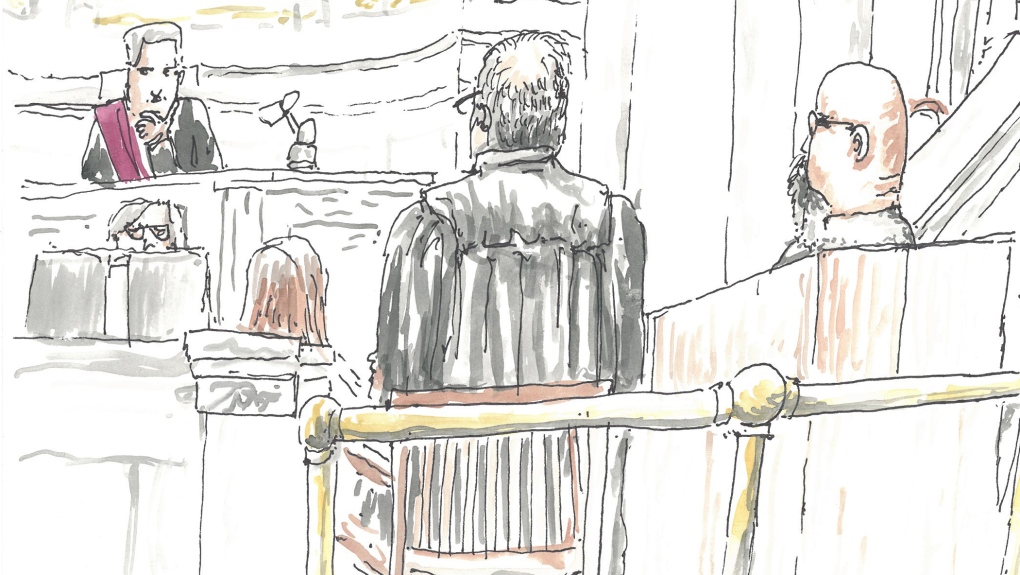Accused killer Jeremy Skibicki could have a challenging time convincing a judge that he is not criminally responsible for the deaths of four Indigenous women, a legal analyst says.
Skibicki, 37, is on trial for four counts of first-degree murder and has previously pleaded not guilty. Through his lawyers, he admitted in court to killing the women in Winnipeg, but argues he is not criminally responsible for the deaths due to a mental disorder.
Robert Karrass, a Toronto-based lawyer and legal analyst, says this type of defence is not easy to prove.
“They would have to have quite a bit of evidence to suggest that not only is he suffering from a mental disorder and that there’s a history of mental disorder, but also that it was affecting his ability to know right from wrong,” he said.
“It’s really an uphill battle for him.”
Typically, the accused will undergo a forensic psychiatric assessment to help determine their mental state, Karass says. In many cases, the defence and crown prosecutor each select a forensic expert to perform the review, unless they can both agree on one.
“Oftentimes it boils down to a battle of the experts,” Karrass said.
Brian Pfefferle, a criminal defence lawyer based in Saskatoon, has been involved in several cases where the accused argues they are not criminally responsible.
The argument is part of an “extremely complex area of law” that can add delays to the trial in the range of three months to one year, according to Pfefferle.
“This is a process which absolutely is not a fast-food justice process. It does take significant time,” he said.
 The Court of King’s Bench of Manitoba building is shown in Winnipeg on Monday, April 29, 2024. (Daniel Crump / The Canadian Press)
The Court of King’s Bench of Manitoba building is shown in Winnipeg on Monday, April 29, 2024. (Daniel Crump / The Canadian Press)
The jury trial will now be heard by judge alone due to the complexities and changing nature of the case.
“Now the question is not: did he do it? But why did he do it?” Karrass said.
Skibicki admits to killing Rebecca Contois, Morgan Harris, Marcedes Myran and an unknown woman, whom Indigenous leaders have named Mashkode Bizhiki’ikwe or Buffalo Woman.
Police found the partial remains of Contois in a Winnipeg dumpster and landfill in 2022.
Officers believe the remains of Harris and Myran are located in another landfill near Winnipeg. Government funding has been dedicated to searching the landfill, but a timeline for the search has not been set.
If the judge disagrees with the defence, and finds Skibicki criminally responsible for the deaths, Karrass says the accused will be convicted of murder.
If he is deemed not criminally responsible, a review board would decide where Skibicki goes next, which could include spending time in a custodial facility such as a psychiatric centre.
“His essential freedom would be governed by the review board,” Pfefferle said.
“The focus would be on public safety. So it would be extremely unusual for someone facing a very, very serious charge to be released promptly without conditions.”
Skibicki’s case is due back in a Winnipeg courtroom on Wednesday when the judge is expected to dismiss the jury.







